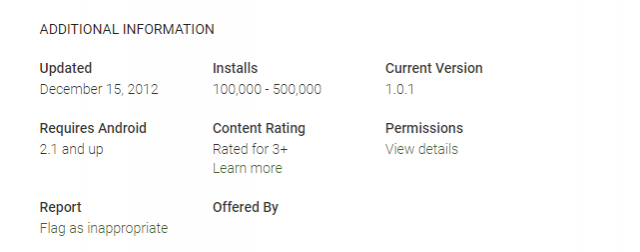- Android P won't run apps built for Android 4.1 and older version
- Older apps have security vulnerabilities and loopholes
- Older apps are not optimized for latest smartphones
- Android P will be launched to the public sometime later this year
Android's upcoming version — Android P — will come with a whole bunch of new features.
The next big Android version will bring features such as native iris-scanning support, an advanced call-blocking feature, and support for iPhone X-like display notches, and will also let you use your smartphone as a wireless keyboard.
But there are certain things Android P may not support, particularly archaic apps on Google's Play Store that haven't seen an update since Android Jelly Bean.

Now, there are plenty of apps on the Play Store that haven't been updated for years. Some of these apps still work fine with most recent Android versions, including Android 8.0 Oreo. However the upcoming Android 9.0 aka Android P — Android Pineapple Pie or whatever it will be called — won't support these apps.
According to a report from Android Police, Google will block apps built for Android 4.1 Jelly Bean (launched in 2013) or earlier versions from opening on the next iteration of Android. This means users who still use some of these very old apps won't be able to use them if they decide to upgrade to Android P. They'll probably have to stick to their older phones or Android versions in order to be able to use these apps.

The decision to block these outdated apps from running on the next Android version may have been taken by Google to ensure Android P is more modern and secure. Most of these obsolete apps, despite being functional, might have some security vulnerabilities that can compromise a device's security.
Another reason for Google's decision to block such apps may be because the apps built for Android 4.1 and older versions may not be as optimized for modern smartphones in terms of features, UI, resolution and other factors.
Whatever the reason, Android P is certainly going to be the most advanced mobile operating system (OS) Google has ever made, and it's about time we move on to newer apps that have more advanced features and improved security. Recently, Apple too mandated developers to update their apps to 64-bit if they want the apps to remain on its App Store.
Android P is currently available for developers as a Developer Preview compatible with Google's Pixel smartphones, including the Pixel, Pixel XL, Pixel 2 and Pixel 2 XL. The public release is expected to take place later this year.
Source: Android Police










